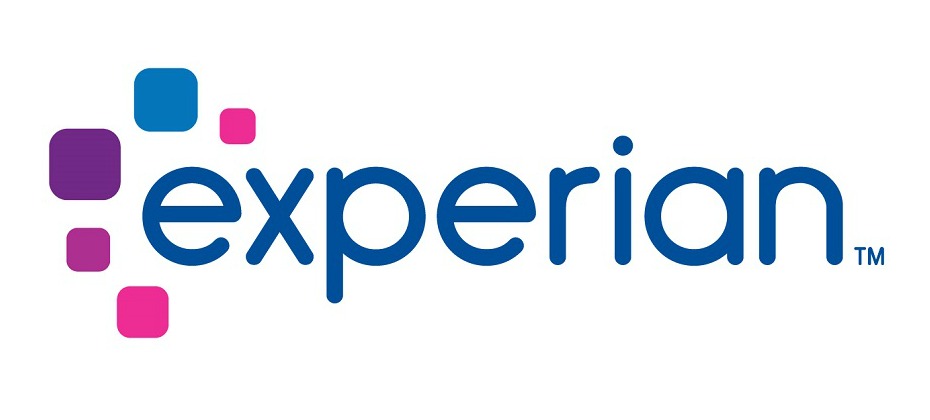Social Responsibility
Experian is deeply committed to making an important difference in each of the communities we operate and live all over the world. Through our relationships with nonprofit organizations, our dedication to consumer education and our encouragement of employee volunteerism, we are able to champion a number of important causes. Read about our latest corporate social responsibility news below:

My work with the non-profit side of Experian started more than a decade ago, when I was asked to provide some general oversight with a project. I was only meant to play a supporting role, but my passion for the work blossomed immediately. It also seemed fortuitous that my colleagues could jokingly call me “Tammy Non-Proffitt.” Non-profits are dedicated to furthering and advocating for their respective social causes, but they don’t always have the resources they need to drive their message home. Additionally, non-profits sometimes have trouble understanding who their actual donors are due to a lack of data insights. With the limited budgets non-profits have, it would be a shame to waste hard-earned dollars on a campaign that won’t resonate with the right people. Luckily, Experian utilizes data that helps non-profits target the audiences that care about their causes across multiple channels, driving donations that are crucial to the organization’s function, while raising awareness about their cause and furthering their efforts. Recently, I worked with the Raleigh, North Carolina-based non-profit Rise Against Hunger, an international organization that prevents hunger by providing food and aid to people who need it. When Rise Against Hunger was looking to promote several fundraising Facebook campaigns, our data allowed the organization to identify the right audiences for them to target. With this data, Rise Against Hunger can directly target people who are more likely to care – and donate – to their cause. I’ve also had the opportunity to work with The Orangewood Foundation, based in Santa Ana, California, which prepares former and current foster youth to reach their potential and learn about the basic life skills they need to succeed. Like Rise Against Hunger, Orangewood needed help segmenting their own current donor base for different promotions and campaigns, based on age, location and area of interest. Orangewood provides services to more than 1,500 youth every year, so making sure they are targeting the right people for donations is extremely important. Since I began working with Orangewood, I’ve had the chance to visit their campus and charter school, and was simply blown away by the quality of their staff and facilities. Data drives and informs decision-making, helping organizations like the non-profits I work with make smart choices about their communications outreach. In addition, my recent work has not only allowed me to help non-profit clients I care about, but also connected me with other Experian employees, showing how different teams can effectively collaborate to use data for good.

In the United States, many individuals struggle with managing their money. In fact, a recent study by Mintel found that only 19 percent of respondents would rate themselves highly on their financial knowledge. As the Director of Public Education at Experian, this finding, while concerning, is not surprising. Since joining Experian twenty years ago, my team and I have spoken with thousands of consumers across the country about personal finance. From bank presidents to blue-collar workers, the individuals I speak to all want the answer to one question – “how can I plan for my financial future, taking into consideration life’s ups and downs?” The Mintel survey found that 21 percent of Americans today are not at all confident about reaching their financial goals, but my team and I are working every day to change this. We are committed to working with various communities within the U.S. to help them better understand their finances. We provide training for young men and women in the Air Force about how to succeed financially while on active duty and when returning to civilian life as part of a program with the Hero’s at Home organization. In partnership with the Society for Financial Education and Professional Development, we also educate young adults at historically black colleges and universities, answering questions about building credit and managing money. Through the LifeSmarts Competition, we challenge high school students to compete on knowledge of personal finance. And through some of our other programs, we work with low-income women and immigrant populations to promote financial inclusion by helping them establish credit or understand loans. Through these experiences, we’ve met countless inspiring individuals from various backgrounds with compelling success stories. For example, a member of the Air Force once told us that, following one of our sessions, she was able to improve her credit and buy her first home. Stories like this are why I am so proud to be part of the only dedicated financial education team in the industry. I am excited to continue empowering people from all walks of life to reach their financial goals. Learn more about the Mintel research here.

I’m the head of Serasa Experian’s DataLab, where my colleagues and I focus on using data and artificial intelligence to solve complex challenges for our customers. Our team of data scientists and applied research practitioners use data analytics to create new products and services that address world needs. One successful product is RWA, a platform that analyzes the dynamics of cities to help businesses make informed decisions on their next site location. Occasionally, however, we also discover innovative ways data can solve our own obstacles at Experian. Last year, several departments within Experian were facing similar challenges. We realized the problem could be solved if each group got together to share their perspectives, brainstorm and then collaborate on a common solution. At the end of that project, our teams decided to find more ways to encourage cross-team collaboration within the DataLab network more often. That’s when we decided to launch our first hackathon. Hackathons are events where a large number of people are challenged to participate in collaborative computer programming projects. Various challenges are proposed and the goal is to optimize, reinvent or replace current solutions, providing the participants with the freedom to select their project and team. For our inaugural hackathon, we challenged 80 programmers, designers and project managers to work together for more than 24 hours to create efficient authentication and retention processes to benefit customers. In our second hackathon, we asked participants to create a new Serasa Experian app that would improve relationships with consumers, along with new products that would utilize Experian’s database. The winning app solution ended up using positive registration data to improve personal credit scores for consumers. This app is now in the process of implementation. For our most recent hackathon, held in 2017, we challenged 200 employees and external participants to develop solutions. One of the challenges was to develop solutions to improve the lives of visually disabled individuals. We invited three people with visual disabilities to share their experiences, giving the teams a personal perspective for how a new product could improve their daily lives. For more than 40 hours, the teams worked tirelessly – utilizing data analysis, product design and business planning – to develop their innovative ideas. Although we have only hosted three so far, I hope to continue bringing the culture of the hackathons into our day-to-day activities at Serasa Experian. By collaborating more with coworkers in the past couple of years, I have been inspired by their ability to approach problems in unique ways. I am proud to foster such a collaborative environment and excited to see my coworkers prove a fundamental belief at Experian - hard work can also be fun when you work hard and play hard.

In the aftermath of Hurricane Harvey, the nation is waiting to assess the scope of the damage.

Knowledge is the key to unlocking financial success. Experian is committed to increasing consumer understanding of financial concepts.

Financial health matters. That’s why we’re joining the Center for Financial Services Innovation and the nation’s leading banks, financial services providers and nonprofits in supporting #FinHealthMatters Day on June 27, 2017.

We’re at a critical point in our nation’s history. We need to make a stand and address the root causes of financial instability in this country. I believe the lack of financial education and access to cheaper financial products are two of the key contributors impacting people’s financial health today.

As Serasa Experian’s Corporate Sustainability Manager in Brazil, I’m dedicated to my job promoting diversity and inclusion efforts at work. But it also happens to be my passion. I believe that companies have a responsibility to reflect the diversity found in society, giving everyone equal opportunity to excel regardless of color, gender or disability. And yet, while a lot of companies over the years have made great strides toward hiring a diverse array of people, sometimes the harder — yet more impactful — work is making sure that diverse group of employees can continue to develop professionally after they’re hired. To this end, Serasa Experian’s Business Network for Social Inclusion (Rede Empresarial de Inclusão Social) launched a program called the Top Talent Project, which encourages and accelerates professional development once someone with physical disabilities is hired. I don’t want to simply hire people with disabilities; I want to ensure they can be productive and grow in their roles. While people with disabilities can bring great experience and skill to their positions, they may need some help integrating into teams. That’s why we work closely with each new hire, their managers and their mentors to guide them on a daily basis. If someone is hearing-impaired, for example, they may know only sign language and not Portuguese, making it difficult for them to communicate with their team. Through the Top Talent Project, we train new hires to communicate at work with their Portuguese-speaking coworkers. And then we give sign language training to their team members! We work hard to create a working environment that ensures success for everyone. In 2016, Serasa Experian received the United Nations Good Practices for Workers with Disabilities Award for our inclusion work in Brazil. That same month, I also was honored to receive the Empregueafro Award from the City Council of São Paulo for promoting ethnic diversity. All these accolades make me so proud because they’re a reflection of the way we at Experian take care of our people. Ten years ago, I changed careers so I could focus more on making the world a better place. Serasa Experian has given me the opportunity to do just that.

In Italy, some people believe that a credit report is just a list of bad people who haven’t paid what they owe. In addition to a poor understanding of how credit works, some Italians also have large amounts of debt, especially among millennials. Young people don’t always think about how their current financial situation can affect their future. Fewer millennials are taking out loans for houses and cars, and more and more take out small loans to pay for their gym memberships or mobile phones. Unemployment rates are high in Italy, and without a job to pay the fees, young families and students’ debt keep piling up. I’ve worked with Experian for 16 years, but my current role as the marketing and communications manager in Italy is the first time I’ve worked directly for consumers, trying to understand their needs and how we can address them. As a Italian, I’ve seen firsthand the lack of good financial education out there – even in the government – and my team and I wanted to find a solution that would help people understand their credit and financial situation to prepare them for the future. My team partnered with Movimento Difesa del Cittadino (MDC) – an organization that promotes the protection of consumers in Italy – to create and launch a new tool in January 2017 called RataTua; or in English, "Your Installment." RataTua is a self-assessment smartphone application that enables consumers to assess their overall finances and their capacity to sustain additional loans. After assessing a consumer’s credit history, the app displays a red, yellow or green indicator of financial risk, and provides helpful tips and financial definitions to help people better understand their financial situation. Our goals with this tool are to educate consumers on how to best prepare themselves for major financial decisions and explain how they can improve their credit scores. At Experian, we have amazing quantities of both positive and negative data, and we’re trying to shift the perspective that credit bureaus are not the equivalent to Santa’s naughty list. In addition to the app, we printed 20 thousand copies of a Consumer Advice Guide that walks consumers through their lending journey – from their decision to apply for a loan to how to avoid falling into too much debt. We’ve distributed these brochures throughout 60 Movimento del Cittadino offices in Italy. In the end, we want to give young Italians more choices and opportunities for their futures, so they can achieve their goals. By helping millennials think through how their financial choices have implications for the future, we can prepare them for unforeseen expenses down the road.